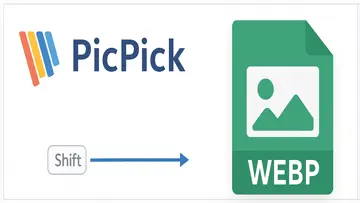Qemu: Emulate Hardware on Diverse Platforms
Qemu is a versatile open-source emulator that allows users to run virtual machines on multiple architectures.
Qemu by Fabrice Bellard
Qemu, created by renowned software developer Fabrice Bellard, is a free and open-source emulator that allows users to run operating systems and programs designed for one system on a different system. With its versatile architecture, Qemu supports various hardware and guest operating systems, making it a valuable tool for developers, testers, and virtualization enthusiasts.
Key Features of Qemu:
- Emulation Capabilities: Qemu can emulate different CPUs, including x86, ARM, PowerPC, and SPARC, enabling users to run a wide range of operating systems on their host machine.
- Virtualization Support: Users can leverage Qemu's virtualization features to create and manage virtual machines with different configurations and specifications.
- Snapshot Functionality: Qemu allows users to take snapshots of virtual machine states, making it easier to revert to previous configurations or save the current state for later use.
- Networking Options: Users can configure networking settings within Qemu to establish connections between virtual machines or bridge connections with the host network.
- USB Device Passthrough: With Qemu, users can pass through USB devices from the host to the guest operating system, allowing for seamless integration of external devices.
Advantages of Using Qemu:
- Flexibility: Qemu's broad support for different architectures and operating systems gives users the flexibility to test software in various environments without the need for multiple physical machines.
- Cost-Efficiency: As a free and open-source tool, Qemu helps users save on licensing fees associated with commercial virtualization software.
- Performance: While emulation may introduce some overhead, Qemu is known for its efficient performance when running virtual machines, making it a reliable choice for development and testing purposes.
- Community Support: Being an open-source project, Qemu benefits from a large community of developers and users who contribute to its improvement and provide assistance through forums and online resources.
How to Get Started with Qemu:
- Download the latest version of Qemu from the official website or package manager of your operating system.
- Install Qemu on your host machine following the provided instructions for your specific environment.
- Explore the documentation and tutorials available online to learn how to create virtual machines, configure networking, and make the most of Qemu's features.
- Join forums or community channels to engage with other users, seek help when needed, and stay updated on new developments in the world of virtualization.
Overview
Qemu is a Open Source software in the category Development developed by Fabrice Bellard.
The users of our client application UpdateStar have checked Qemu for updates 188 times during the last month.
The latest version of Qemu is 9.0.0, released on 05/20/2024. It was initially added to our database on 11/06/2007.
Qemu runs on the following operating systems: Windows. The download file has a size of 116.7MB.
Users of Qemu gave it a rating of 3 out of 5 stars.
Pros
- QEMU is a versatile and powerful open-source emulator that supports a wide range of guest operating systems.
- It provides good performance for both emulating full systems and virtualizing individual hardware components.
- The vast array of supported platforms and architectures make QEMU a flexible option for developers and testers.
- It offers the ability to easily create and manage virtual machines through user-friendly interfaces like QEMU Manager or command-line tools.
Cons
- While QEMU can be highly effective, it may require more configuration and setup compared to other virtualization solutions like VMware or VirtualBox.
- The learning curve for utilizing all features and capabilities of QEMU can be steep for beginners or users unfamiliar with command-line interfaces.
- Performance can sometimes be a concern when emulating certain hardware components or running resource-intensive tasks within the virtual environment.
FAQ
What is Qemu?
Qemu is an open-source emulator that allows multiple operating systems to run on a host machine.
Who created Qemu?
Qemu was created by Fabrice Bellard in 2003.
What types of systems does Qemu support?
Qemu supports emulation for a variety of system architectures including x86, ARM, PowerPC, and more.
What operating systems does Qemu support?
Qemu can run a wide range of operating systems such as Linux, Windows, macOS, FreeBSD, and more.
Can Qemu be used for virtualization?
Yes, Qemu can be used for full-system virtualization or for running virtual machines. It can also be integrated with KVM (Kernel-based Virtual Machine) for accelerated performance.
What interfaces does Qemu provide?
Qemu provides several interfaces including a command-line interface (CLI), an API for integration with other software, and a graphical user interface (GUI) through the use of optional front-end applications such as virt-manager.
Is Qemu free to use?
Yes, Qemu is released under the GNU General Public License and is free to use and distribute.
Can Qemu be used for development and testing purposes?
Yes, Qemu is often used by developers and testers to emulate different system architectures or to test software in different environments. It can also be used for debugging and analyzing software behavior on different platforms.
What are some of the advantages of using Qemu?
Some advantages of using Qemu include support for a wide range of system architectures and operating systems, flexible and customizable emulation options, and the ability to run without hardware virtualization support.
What are some of the disadvantages of using Qemu?
Some disadvantages of using Qemu include slower performance compared to hardware virtualization, the need for more manual configuration, and potential compatibility issues with certain software or hardware.

Peter Salakani
I'm Peter, a software reviews author at UpdateStar and content specialist with a keen focus on usability and performance. With a background in both software development and content creation, I bring a unique perspective to evaluating and discussing general software topics. When I'm not reviewing software, I enjoy staying updated on the latest tech trends, experimenting with new applications, and finding innovative solutions to everyday tech challenges.
Latest Reviews by Peter Salakani
- Protect your files with AntiRansomware by Abelssoft
- Fast and reliable wireless LAN installation with Qualcomm Atheros 11ac Installer
- Streamlined Payment Solutions at Your Fingertips
- Enhance Your Communication with kuandoHUB 64bit
- Efficient document formatting with PIT Format by Biuro Informatyki Stosowanej
Installations
Latest Reviews
|
|
AntiRansomware
Protect your files with AntiRansomware by Abelssoft |
|
|
Quick CPU
Optimize Your CPU Performance with Quick CPU |
|
|
Taskbarify
Boost Your Productivity With Taskbarify! |
|
|
UltraStar Deluxe
Sing Your Heart Out with UltraStar Deluxe! |
|
|
DVR-Studio HD
DVR-Studio HD: A Comprehensive Solution for Media Management |
|
|
MetaX for Windows
MetaX for Windows: The Ultimate Tagging Tool for Video Metadata |
|
|
UpdateStar Premium Edition
Keeping Your Software Updated Has Never Been Easier with UpdateStar Premium Edition! |
|
|
Microsoft Visual C++ 2015 Redistributable Package
Boost your system performance with Microsoft Visual C++ 2015 Redistributable Package! |
|
|
Microsoft Edge
A New Standard in Web Browsing |
|
|
Google Chrome
Fast and Versatile Web Browser |
|
|
Microsoft Visual C++ 2010 Redistributable
Essential Component for Running Visual C++ Applications |
|
|
Microsoft Update Health Tools
Microsoft Update Health Tools: Ensure Your System is Always Up-to-Date! |





